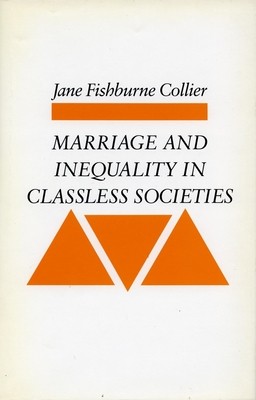
- We will send in 10–14 business days.
- Author: Jane Fishburne Collier
- Publisher: Stanford University Press
- ISBN-10: 0804721777
- ISBN-13: 9780804721776
- Format: 14.2 x 21.4 x 1.8 cm, softcover
- Language: English
- SAVE -10% with code: EXTRA
Marriage and Inequality in Classless Societies (e-book) (used book) | bookbook.eu
Reviews
Description
This study presents three ideal-typic models for analyzing inequality in kin-based, non-stratified societies that are commonly described as bands, tribes or ranked societies (but not chiefdoms). Each model discusses the organization of inequality associated with a particular way of validating marriages. The book is a serious and complex attempt to understand the bases and dynamics of inequality in classless societies. It offers a sophisticated argument for the position that there is a culturally-structured basis for women's universal subordination. An important strength of Collier's theoretical interpretation is that it makes the case for universality of subordination without slipping into biological reductionism.
EXTRA 10 % discount with code: EXTRA
The promotion ends in 17d.10:37:15
The discount code is valid when purchasing from 10 €. Discounts do not stack.
- Author: Jane Fishburne Collier
- Publisher: Stanford University Press
- ISBN-10: 0804721777
- ISBN-13: 9780804721776
- Format: 14.2 x 21.4 x 1.8 cm, softcover
- Language: English English
This study presents three ideal-typic models for analyzing inequality in kin-based, non-stratified societies that are commonly described as bands, tribes or ranked societies (but not chiefdoms). Each model discusses the organization of inequality associated with a particular way of validating marriages. The book is a serious and complex attempt to understand the bases and dynamics of inequality in classless societies. It offers a sophisticated argument for the position that there is a culturally-structured basis for women's universal subordination. An important strength of Collier's theoretical interpretation is that it makes the case for universality of subordination without slipping into biological reductionism.


Reviews